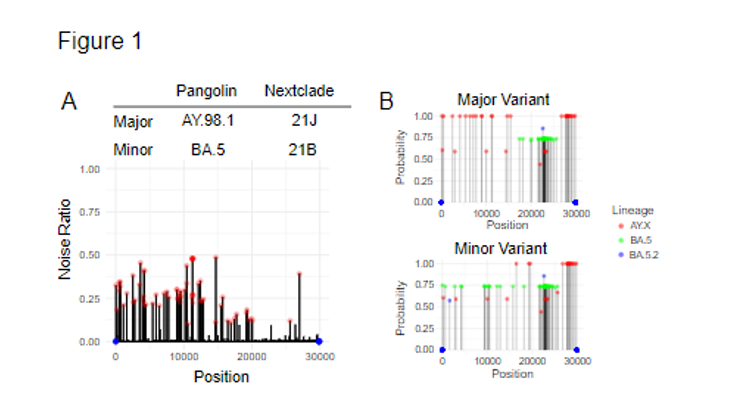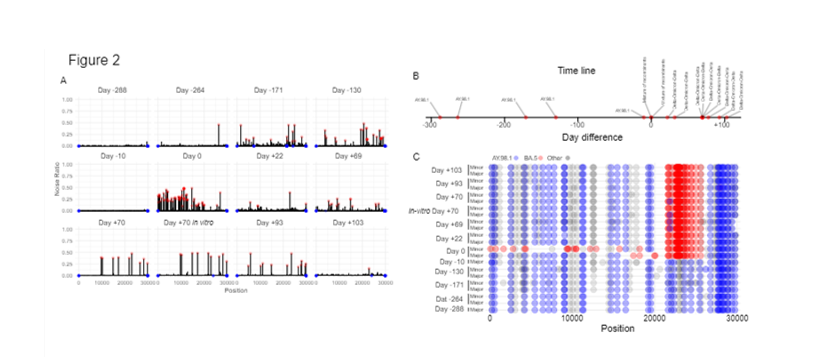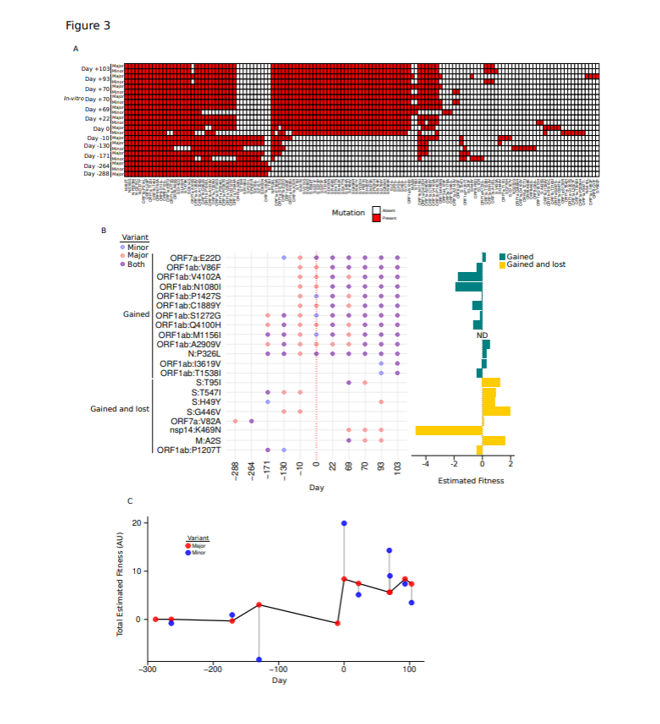Recombinant SARS-CoV-2 Delta/Omicron BA.5 emerging in an immunocompromised long-term infected COVID-19 patient
Garcia, I., Bråte, J., Fossum, E., Rohringer, A., Moen, L. V., Hungnes, O., Fjaere, O., Zaragkoulias, K. and Bragstad, K. 2024. Scientifc Reports. doi:https://doi.org/10.1038/s41598-024-75241-3



Abstract
Background
The emergence of the SARS-CoV-2 virus led to a global pandemic, prompting extensive research efforts to understand its molecular biology, transmission dynamics, and pathogenesis. Recombination events have been increasingly recognized as a significant contributor to the virus’s diversity and evolution, potentially leading to the emergence of novel strains with altered biological properties. Indeed, recombinant lineages such as the XBB variant and its descendants have subsequently dominated globally. Therefore, continued surveillance and monitoring of viral genome diversity is crucial to identify and understand the emergence and spread of novel strains.
Methods
The case was discovered through routine genomic surveillance of SARS-CoV-2 cases in Norway. Samples were whole genome sequenced by the Illumina NovaSeq platform and SARS-CoV-2 lineage assignment was performed using Pangolin and Nextclade. Mutations were pangolin classified based on the frequency of the mutations present in the AY.98.1 and BA.5 lineages.
Results
In this study, we report and investigate a SARS-CoV-2 recombination event in a long-term infected immunocompromised COVID-19 patient. Several recombination events between two distinct lineages of the virus, namely AY.98.1 and BA.5, were identified, resulting in a single novel recombinant viral strain with a unique genetic signature.
Conclusions
The presence of several concomitant recombinants in the patient suggests that these events occur frequently in vivo and can provide insight into the fitness associated with the different combinations of mutations. This study underscores the importance of continued tracking of viral diversity and the potential impact of recombination events on the evolution of the SARS-CoV-2 virus.
Trial registration
Retrospectively registered